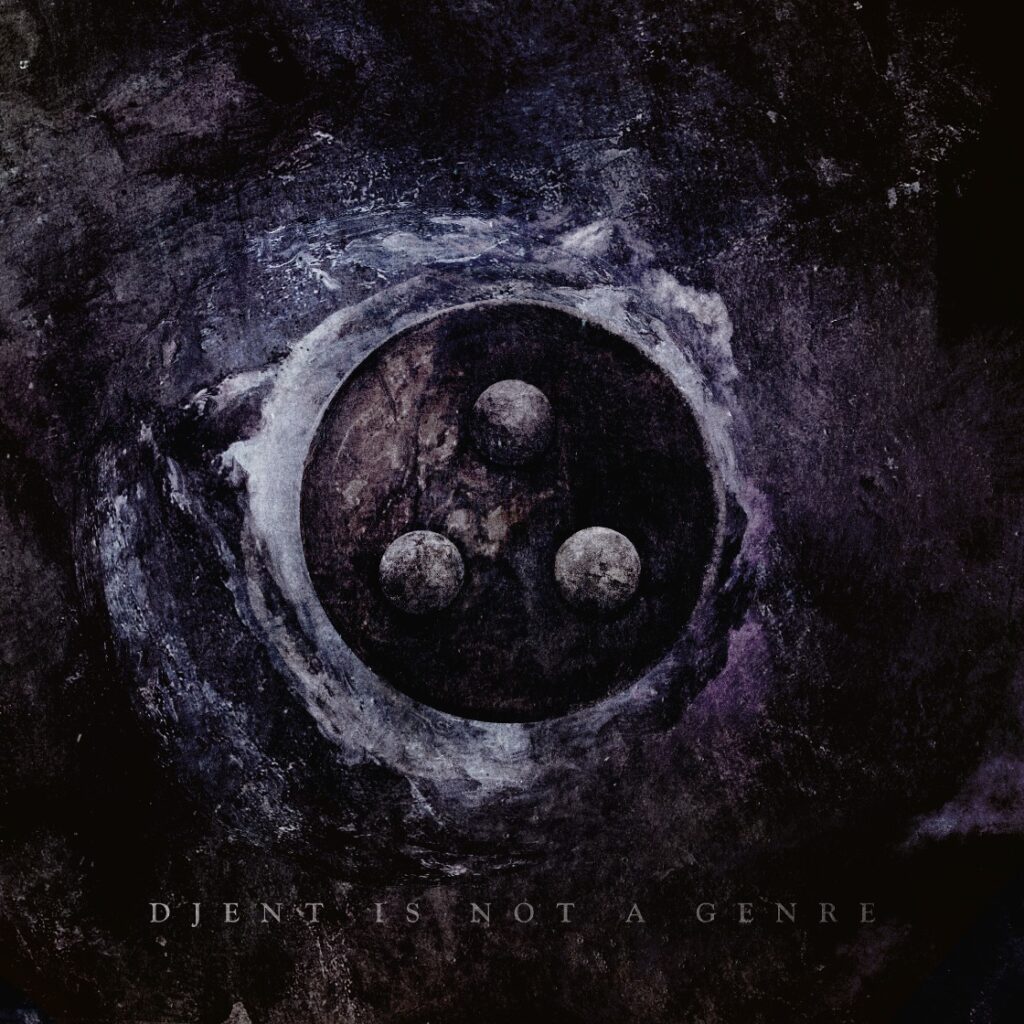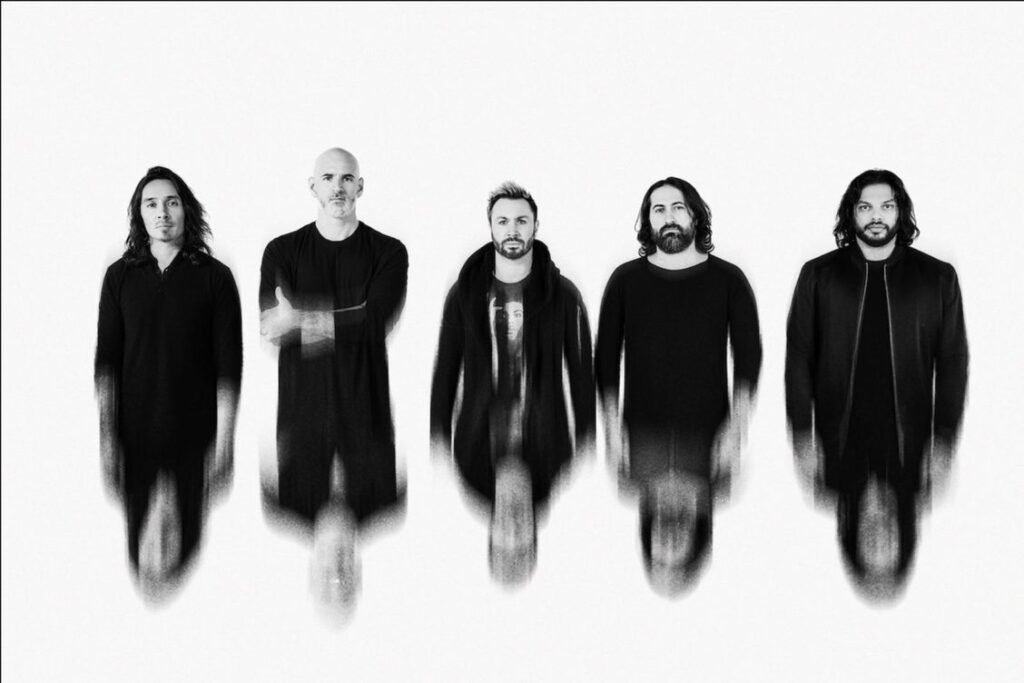“Periphery V: Djent is Not a Genre” is not just an album; it’s a sonic manifesto that reaffirms Periphery‘s position at the forefront of the progressive metal and djent movement. Released in 2023, this nine-track masterpiece stands as a testament to the band’s evolution, technical prowess, and uncompromising dedication to pushing the boundaries of their craft.
The album opens with “Wildfire,” a 7:06 tour de force that immediately immerses the listener in Periphery’s signature blend of intricate guitar work, polyrhythmic drumming, and Spencer Sotelo’s versatile vocals. The track sets a high bar for the sonic journey ahead, seamlessly transitioning between moments of explosive energy and melodic introspection. The title is fitting, as the music blazes a trail through uncharted territories.

“Atropos,” at 8:24, delves into darker and more atmospheric realms. The extended runtime allows the band to explore a range of sonic textures, from hauntingly beautiful passages to intense and dissonant moments. The meticulous layering of instrumentation and the interplay between the band members showcase Periphery’s collective musicianship.
“Wax Wings” continues the sonic exploration, clocking in at 7:26. The track’s title, a reference to the myth of Icarus, sets the thematic tone for a composition that explores the themes of ambition and the consequences of flying too close to the sun. The dynamic shifts in the music mirror the ebb and flow of the narrative, creating a captivating listening experience.
“Everything Is Fine!” injects a dose of urgency into the album, with its 5:07 runtime making it one of the shorter yet impactful tracks. The song’s title, juxtaposed against the frenetic instrumentation, adds a layer of irony that permeates the lyrics. Periphery’s ability to convey complex emotions within a concise framework is a testament to their songwriting maturity.
“Silhouette,” a 4:51 instrumental track, serves as a moment of respite within the album. The absence of vocals allows the listener to focus on the intricate guitar work and atmospheric elements. This track is a testament to Periphery’s ability to evoke emotion through their instrumentation alone, showcasing a sonic palette that extends beyond the confines of traditional song structures.
“Dying Star” at 5:18 is a sonic rollercoaster that balances moments of celestial beauty with explosive intensity. The contrast between ethereal melodies and crushing riffs exemplifies Periphery’s ability to create dynamic compositions. The concise runtime ensures that the track remains focused and impactful, contributing to the album’s overall sense of urgency.
“Zagreus,” an 8:19 epic, stands as a centerpiece in the album. The composition weaves a complex narrative, both musically and thematically. The intricate guitar patterns, intricate drumming, and Sotelo’s emotive vocals guide the listener through a multifaceted sonic journey. The extended instrumental sections allow each band member to showcase their technical prowess, creating a cohesive and immersive experience.
“Dracul Gras,” the longest track on the album at 12:22, serves as a sonic odyssey that traverses vast musical landscapes. The title, a play on “Dracula” and the French term for “fat,” hints at the track’s thematic depth. The extended runtime is utilized to its fullest, with the composition evolving through various movements, from ambient interludes to intense crescendos. The track serves as a testament to Periphery’s ability to sustain interest and captivate the listener over extended durations.
The album concludes with “Thanks Nobuo,” an 11:17 epic that pays homage to the renowned video game composer Nobuo Uematsu. The track serves as a fitting conclusion to the album, blending technical intricacies with emotive melodies. The nod to Uematsu adds a layer of intertextuality, showcasing the band’s diverse musical influences.
In summary, “Periphery V: Djent is Not a Genre” is a magnum opus that solidifies Periphery’s standing as one of the most innovative and influential bands in progressive metal. Each track contributes to the larger narrative, showcasing the band’s evolution while staying true to their djent roots. This album is not just a testament to Periphery’s musical prowess; it’s a declaration that the boundaries of progressive metal are meant to be pushed, explored, and transcended. “Djent is Not a Genre” is a sonic adventure that demands attention and stands as a defining moment in the band’s discography.

